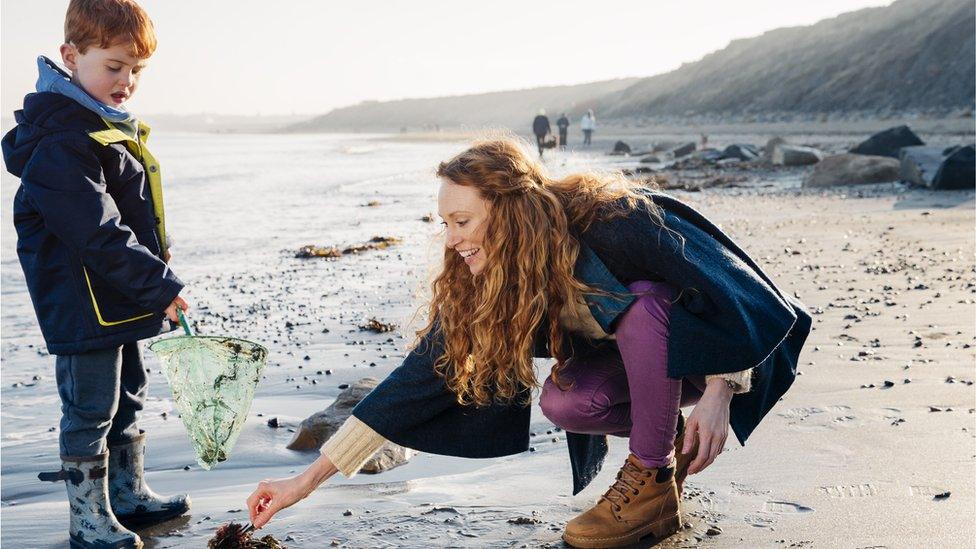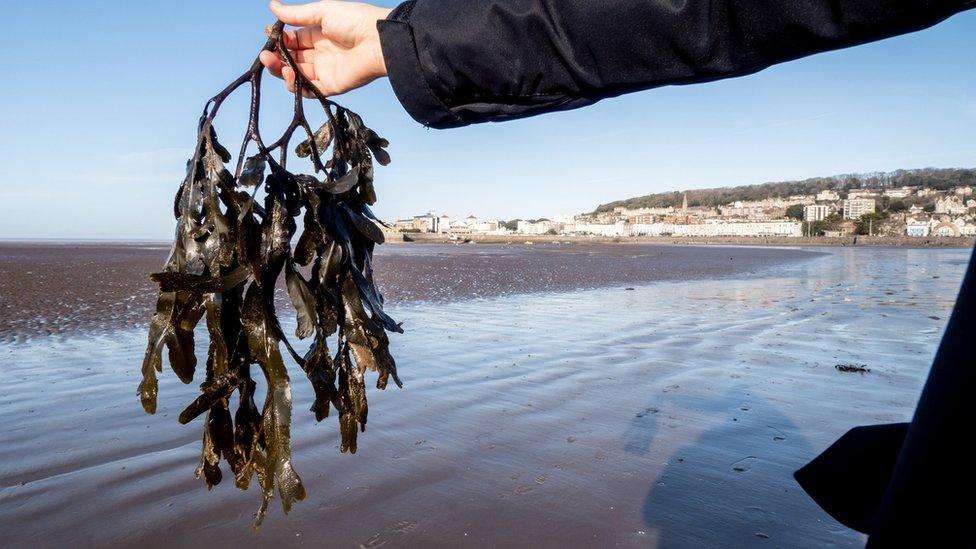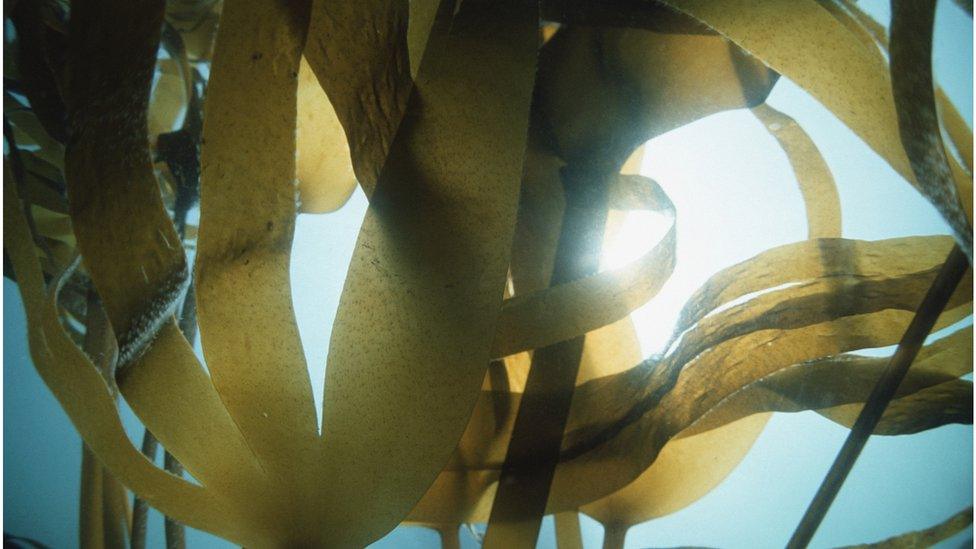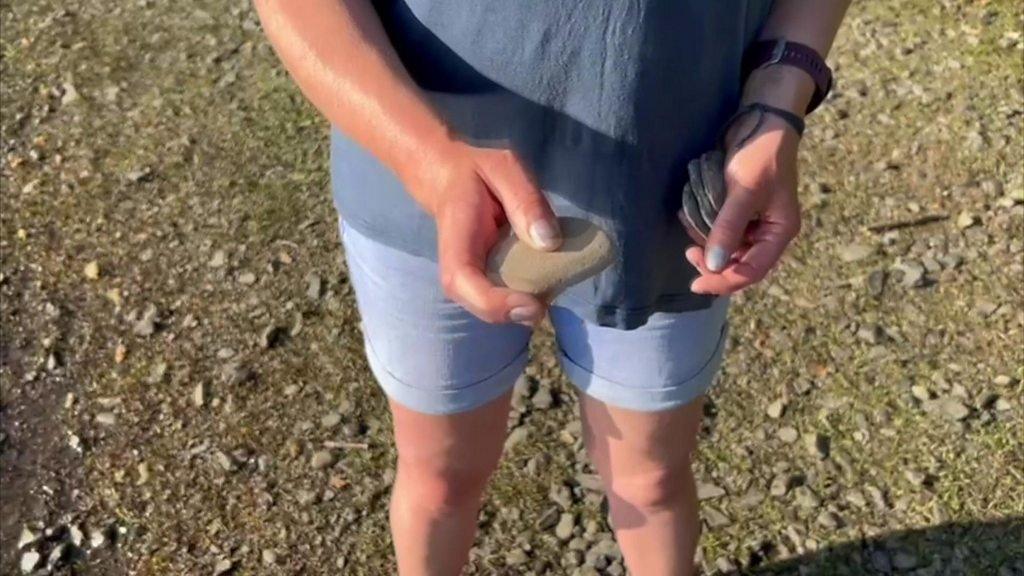The Big Seaweed Search Week: Why is seaweed so super?
- Published
- comments

If you're heading to a beach in the UK in the next few weeks, you could help scientists measure the health of our seas.
The Big Seaweed Search Week is a science project that helps to map out where different types of seaweed can be found around our shores.
With more than 650 different species in British waters, there's a lot to look for, and studying them can reveal information about the sea.
This miraculous sea algae not only stores carbon, but it can also protect our coastlines from being washed away.
How to get involved?

Members of the public are especially encouraged to take part in The Big Seaweed Search from 29 July to 6 August, although you can record and submit data at any time of the year.
Visitors should record which species of seaweed they come across and where they found it to help scientists create an accurate seaweed map of the UK.
You'll need a tablet, mobile device or computer to complete the survey.
You can download a guide and recording form here., external
Choose 5 metres of coastline to survey and fill in the form.
Make sure to take lots of clear photographs of what you find
Why are scientists interested in seaweed?

By studying seaweed scientists can tell what impact environmental changes, like rises in water temperature and acidity levels, are having on the seas.
For example, extreme heatwaves and rising sea temperatures in Western Australia in 2011 caused the local kelp population to fall by 43%.
Results from a search in the UK between June 2022 and May 2023 showed Bladder Wrap and Serrated Wrack were the two most commonly identified types of seaweed, which indicates a rise in sea temperature.
The third most commonly identified seaweed was Calcified Crusts, which can be an indicator of ocean acidification.
Why is seaweed good for the planet?

Justine Millard from the Marine Conservation Society said: "Seaweed is a real ocean superstar, helping to buffer the effects of climate change, absorbing and storing carbon and protecting our coasts from waves and storm damage.
"However, populations of kelp - large brown seaweeds that are a vital blue carbon store - are reported to be declining around the world, limiting our ocean's ability to absorb carbon and combat the climate crisis.
"The more data we gather, the more knowledge we'll have to protect our ocean, and seaweeds, for the future."
- Published11 June 2023

